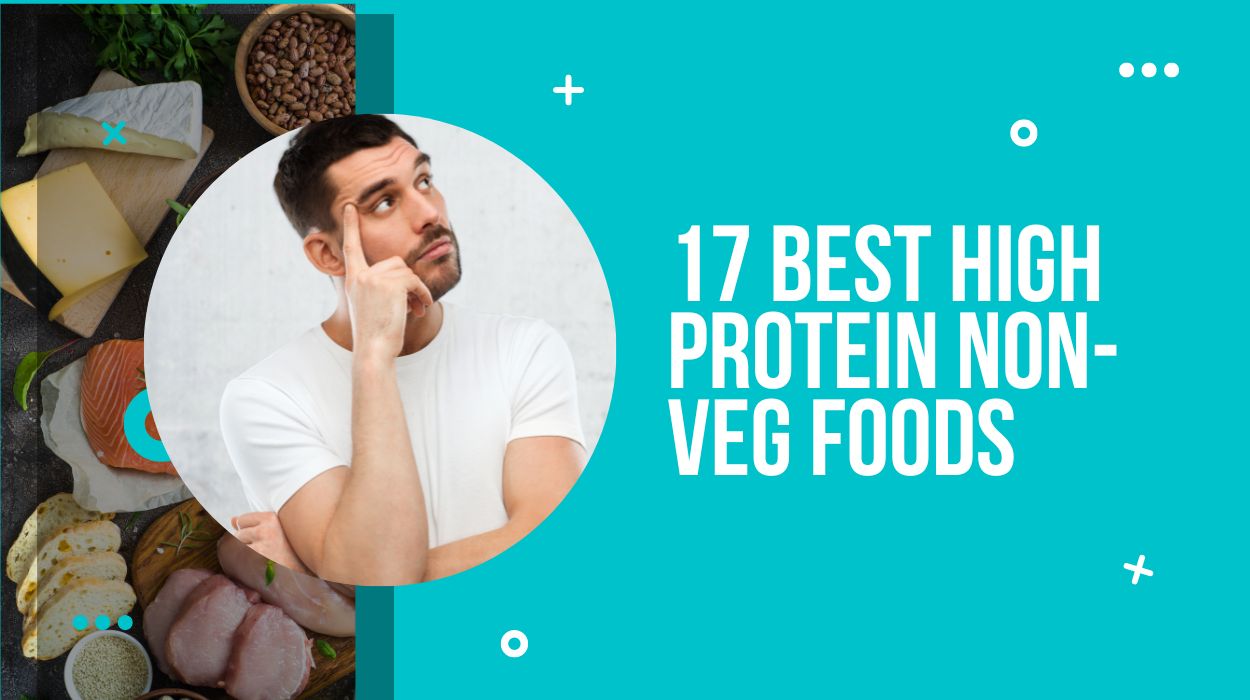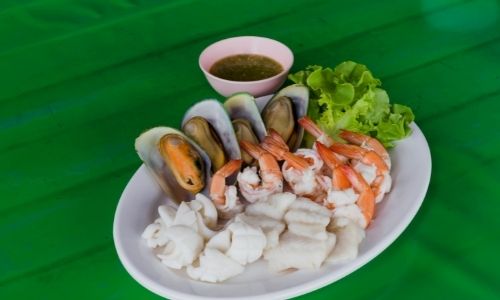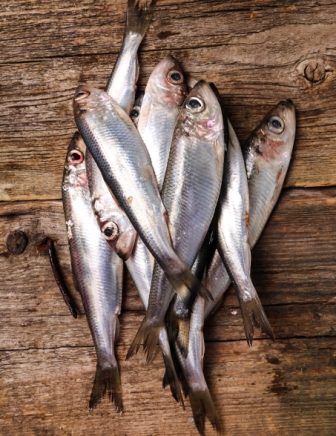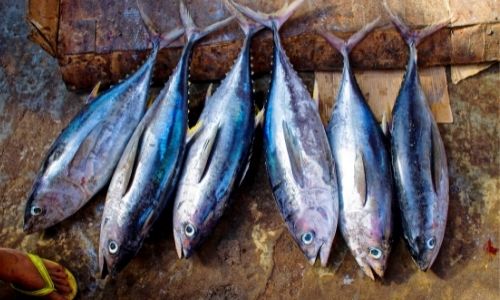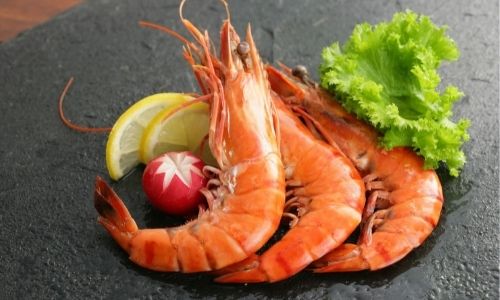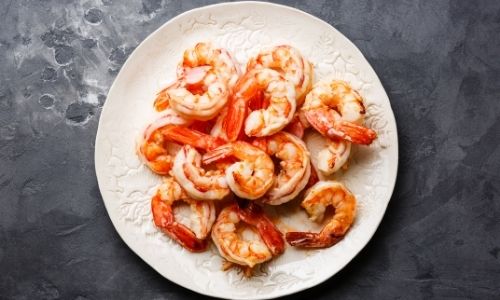Proteins are one of the essential nutrients that our body needs. Gym trainers and fitness freaks consider protein a magic potion to build muscles and endurance. If compared, non-veg foods are higher sources of protein than veg food.
However, choosing a non-veg food that will give you the highest amounts of protein is challenging. Are you stuck in the same confusion? Well, learning about high protein non-veg foods in detail can help you.
In this article, we will be learning about all the non-veg foods that are high in protein.
SeaFood
One of the most loved non-veg foods, Seafood is also a high-protein food source. Nonetheless, seafood is packed with nutrition that benefits our bodies. Let’s start by learning the most common and proteinaceous seafood available, fish.
Fish
Fishes are highly loved seafood items. They are highly nutritious, packed with protein, omega fatty acids, and vitamin D. Now, let’s learn about high-protein fish in detail.
Salmon
Salmon is a great fish choice for increasing your protein intake. They are packed with protein and rich in omega-3 fatty acids, and vitamin B. Salmons are also good sources of potassium that help manage blood pressure and prevent fluid retention in the body. Moreover, salmons contain astaxanthin, which is an antioxidant.
Salmons are also a popular choice for weight management as it reduces appetite, boosts metabolism, and decreases belly fat. Hence, salmons are one of the best non-veg food items to choose from as they don’t just increase protein intake but also provide various other health benefits.
According to Healthline, every 100 g serving of salmon provides 22-25 g of protein.
Sardine
Sardines are small fishes that contain large amounts of protein. Sardines are high sources of vitamins and omega 3 fatty acids and keep our heart health in check. If you are lactose intolerant and can’t consume dairy, sardine can help you get back the calcium content that you miss out on.
You should purchase sardines fresh only. To ensure that you purchase the right sardine, ensure that it has a fresh smell, shiny skin, bright eyes, and firm texture.
Every 100g of Sardine provides 19.8 g of protein.
Author’s tip: Sardine does not contain high levels of mercury as it feeds on plankton only. Hence, you can refrain from worrying about mercury toxicity in the body when consuming sardine.
Halibut
Halibuts are flatfishes containing high amounts of protein. They are also rich in omega-3 fatty acids and vitamins. They protect our heart health and prevent the risks of heart disease. Halibuts are high in selenium and thus, maintain thyroid health.
According to a study published in the International Journal of Endocrinology, selenium helps prevent thyroid diseases. Hence, Halibut is not just a protein provider but also a health provider! Every 100g of Halibut provides 21.5 g of protein.
Cod fillet
Cod fillets are tasty and nutritious fishes commonly consumed by fish eaters. Cod fillet has high amounts of protein and low levels of fat and calories. Nonetheless, it also provides our body with vitamin B, phosphorus, and selenium.
Cod fillets protect our heart health and promote a healthy weight. Moreover, cod fillets are low in mercury and pose a low risk of mercury toxicity. Every 100g of Cod Fillet provides 18g of protein.
Anchovies
Anchovies are tiny, nutritious, and tasty fishes. These fishes are high in protein, omega-3, and selenium. According to Healthline, anchovies may benefit heart and brain health. The protein content of Anchovies may aid in weight loss as well. Every 100g of Anchovies provides 29 g of protein.
Author’s tip: Always rinse the Anchovies before you eat them as they contain high levels of sodium which may be harmful to the body.
Tilapia
If you are searching for affordable fishes that do not taste fishy, Tilapia is the right fish for you. They are nutritious and are rich in vitamins and minerals. Moreover, Tilapias contain high amounts of protein. Every 100 g of Tilapia provides 26 g of protein. However, consuming high amounts of Tilapia is not recommended, as it may pose a health risk.
Tuna
Tuna is famous as a pure-protein fish. Tuna contains low levels of fat and calories and high levels of protein. Nonetheless, Tuna is a high source of B-Vitamins and minerals like potassium, magnesium, and phosphorus. Every 100g of Tuna provides 28 g of protein.
Crab
Seafood contains high amounts of protein and is rich in vitamins and minerals that the body can easily absorb. One such seafood is crab. Crabs are high sources of protein and a great source of copper. Nonetheless, they also contain high omega-3 fatty acids and Vitamin B2. Crabs protect and keep our hearts healthy. Every 100 g of Crab provides 19 g of protein.
Shrimp
Shrimp is a type of shellfish that is a high and pure protein food containing fewer fats and calories. They contain antioxidants and hence, promote brain and heart health. However, Shrimps have high cholesterol levels and should be consumed in moderation.
Before buying shrimp, always check the odor, texture, and color. A good quality Shrimp is firm with a mild salty smell and is white with a reddish or pink tint. Every 100 g of Shrimp contains 24 g of protein.
Octopus
Octopus contains high amounts of protein while ensuring that you do not gain weight as it contains fewer amounts of fats. Every 100g of Octopus provides 30 g of protein. Octopus is also a rich source of selenium and Vitamin B12. Octopus is a great food choice for people wishing to lose weight.
Prawn
Prawns are one of the most popular seafood in the market. It contains high amounts of protein and Vitamin B12. Thus, prawns protect heart and brain health. Moreover, prawns are rich in zinc and phosphorus and can improve immune functions too! Every 100g of Prawn contains 17.6 g of protein.
Egg
Eggs are one of the most excellent sources of protein that you can consume in any form. They can be eaten boiled, poached, scrambled, or baked in any way. Nonetheless, eggs are affordable and low in calories. A single egg may contain 6-8 g of protein. Nonetheless, eggs are also good sources of Vitamin B1, Omega-3 fatty acids, and magnesium.
Author’s note: The white portion of the egg or egg white is proteinaceous, while the yellow part or the yolk is high in fats.
Meat
Meat is one of the most loved and commonly consumed non-veg foods. Meats are complete proteins, meaning they contain all the 9 essential amino acids that the body requires. Nonetheless, proteins are quickly consumed from non-veg foods. Here is a list of the most proteinaceous meats you can indulge in to get the best protein!
Chicken
Chicken, one of the most loved non-veg foods, is a high source of protein. Every 100g of chicken provides 27 g of protein. Chicken is a widely available and commonly consumed food source. Chicken is highly nutritious too. It contains high levels of niacin, selenium, and phosphorus.
Author’s tip: Chicken breasts are more loved than any other part. Nonetheless, chicken breasts are high in proteins and completely carb-free! If you find chicken breasts expensive, you can choose chicken thighs too.
Lamb
Lambs are high protein sources and a famous meat option. Lambs are a rich source of vitamins and minerals like Vitamin B12, Selenium, Zinc, Phosphorus, Niacin, and Iron. Thus, lamb is a nutritious food choice! Every 100g of Lamb provides 25 g of protein.
Beef
People commonly consume beef. Corned beef, beef jerky, and sausages are popular processed beef options. Nonetheless, beef is highly nutritious. It contains high amounts of proteins, vitamins, and minerals. The CLA fat present in beef has various health benefits. Every 100g of beef provides 25-28 g of protein.
Pork
Pork is famous as a high-protein source that aids in weight loss when consumed correctly. The protein content in pork ensures the growth and maintenance of your muscles. Every 100g of Pork provides around 25 g of protein. Nonetheless, pork is also a high source of various vitamins and minerals, providing a high nutritional benefit to your body.
Author’s tip: It is not advisable to regularly consume red meat like beef, lamb, and pork as they contain higher saturated or bad fats than chicken.
Turkey
Interestingly, consuming turkey can make you happy! Turkeys raise the level of serotonin or the happy hormone in the body, thus making you happy. Nonetheless, Turkeys are also rich sources of protein. They prevent muscle wasting and promote muscle retention. Nonetheless, they also aid in weight loss too. To decrease the turkey’s fat content, consume it by removing its skin. Turkeys are a rich source of Vitamin B12 too. Every 100g of Turkey breast can provide 29 g of protein.
Frequently Asked Questions
Is it OK to eat fish every day?
Yes, some people can consume fish daily. Eating fish improves metabolism, concentration, sleep quality, skin quality, and alleviates inflammation. However, ensure that you consume only low mercury fish if you wish to consume it daily, as mercury buildup in the body is harmful.
Are egg yolks good for you?
Egg yolks are a high source of fat. Nonetheless, the yolk also contains concentrated iron, vitamins, and folates. Hence, egg yolks are good for you and your health!
Is fish healthier than meat?
Fish and meat are both healthy. It is hard to choose the healthiest one among the two. While fish is rich in Omega-3, meat is a high source of vitamins and essential minerals.
Conclusion
Eating non-veg foods can provide your body with high amounts of protein. Among non-veg food, the highest provider of proteins includes fish, meats, eggs, shrimp, and octopus. These proteins ensure that you build strength, resistance, and endurance.
As high as non-veg foods are in protein, they are high in saturated fats and calories. Hence, you should modify the consumption of non-veg foods depending on your long-term goals.
Drop-in a comment below and tell us your favorite source of protein!

